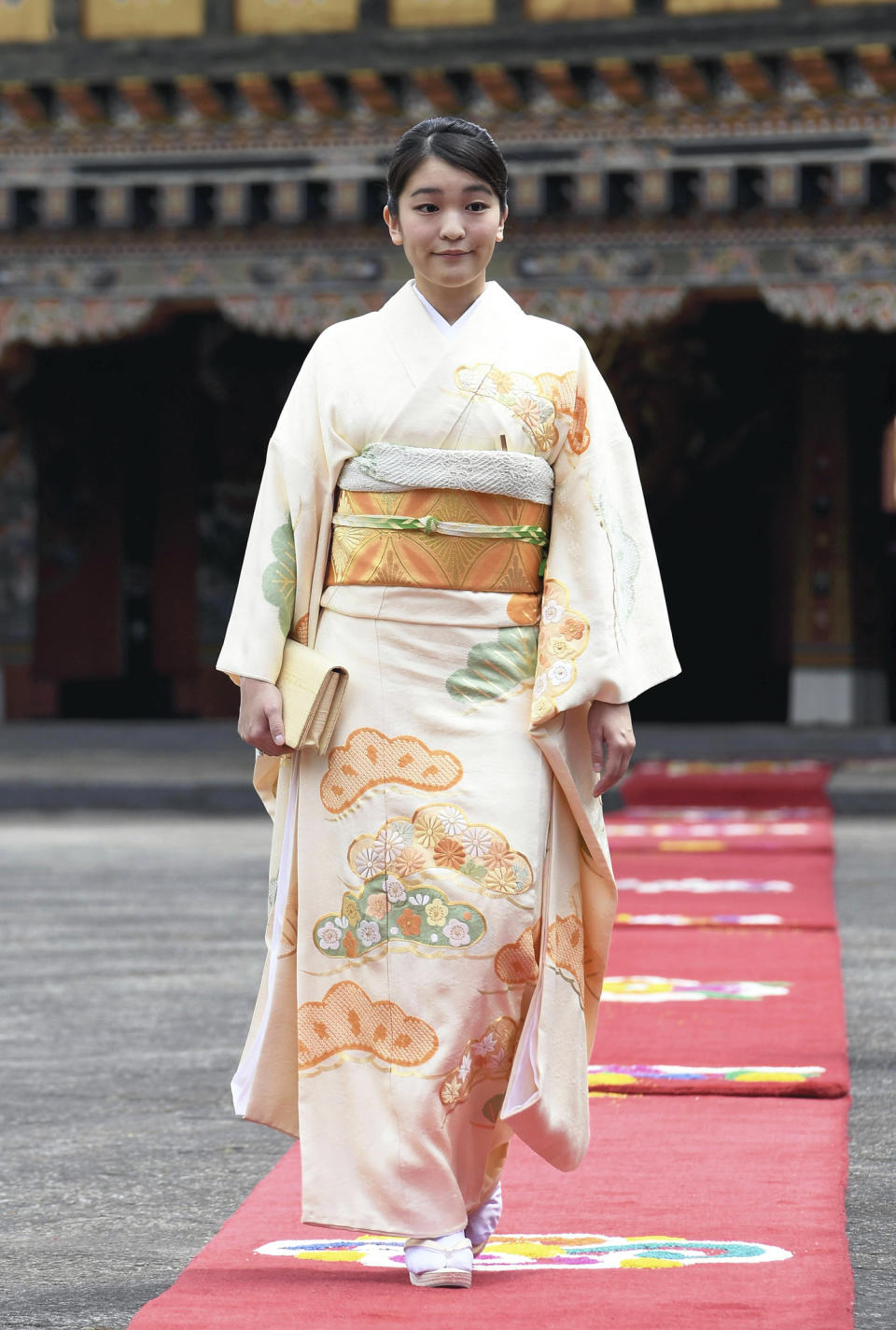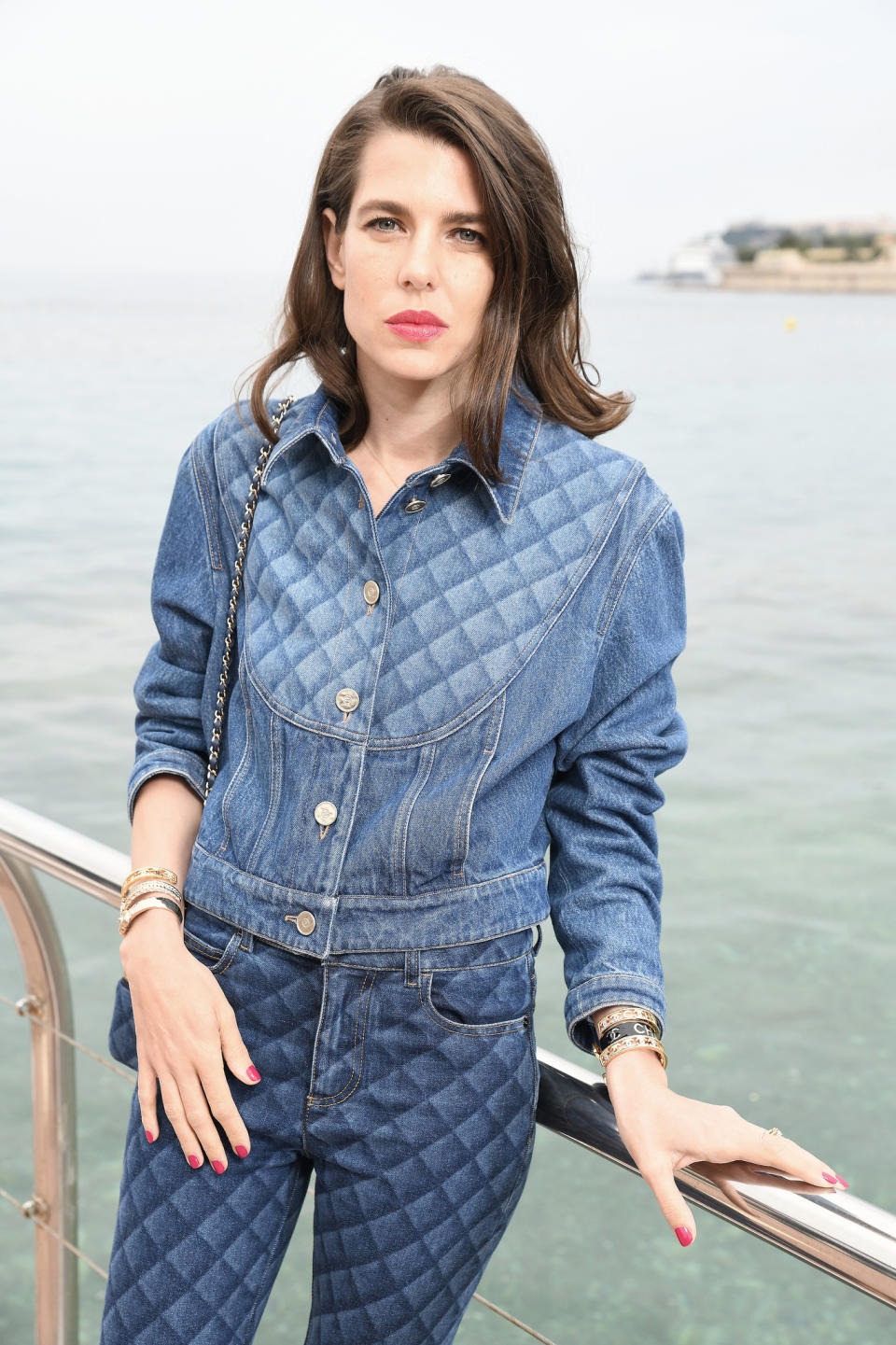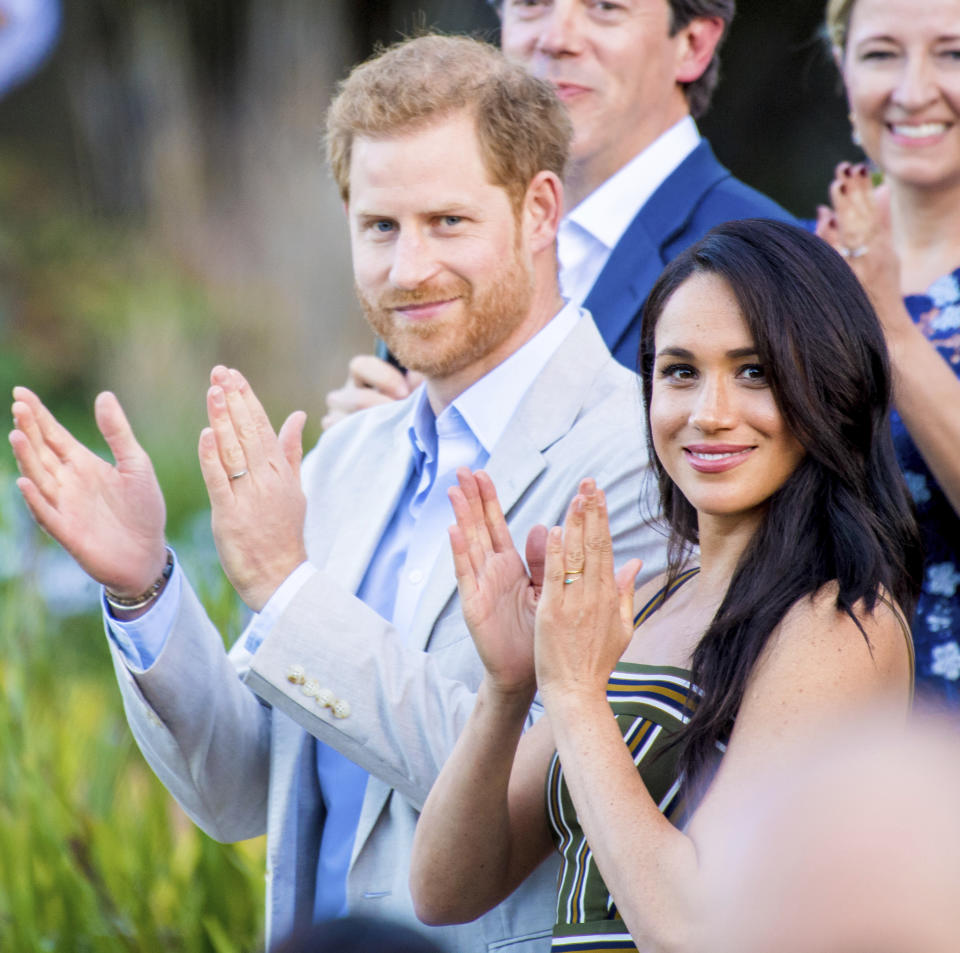Who Really Wants to be a Princess Anyway?
- Oops!Something went wrong.Please try again later.
- Oops!Something went wrong.Please try again later.
- Oops!Something went wrong.Please try again later.

Who needs the royal life when you can be regular shmegular?
While no shortage of ink has been spilled on Prince Harry’s and Meghan Markle’s official departure from The Firm to live more freely in sunny California while pursuing Netflix and Spotify deals, the promise of a more low-key existence is increasingly appealing to other royal types, too.
More from WWD
After renouncing her royal title, Japan’s former Princess Mako of Akishino married Kei Komuro last year and picked up stakes for New York. Under Japanese law, female members of the imperial family who marry commoners forfeit their status. While her husband has embarked on his law career, she is believed to be helping curators in the Metropolitan Museum of Art’s Asian Art Department with research on an informal and unpaid basis. The former princess, who is the niece of Emperor Naruhito, has taken her husband’s name. She is not currently an employee at The Met.

Pool for Yomiuri/AP
Several years ago Princess Märtha Louise of Norway took to Instagram to reveal that she would no longer use the title unless she is on official duty for Norway’s first family or in a private setting. Princess Grace of Monaco’s granddaughter Charlotte Casiraghi has made the distinction that she is not a princess. She is, however, a brand ambassador for Chanel and founder of Les Rencontres Philosophiques de Monaco. Her younger brother, Pierre, is a businessman, proven sailor and Dior ambassador. His wife Beatrice Borromeo also fronts Dior, but is more widely known as an established Italian journalist. And the Casiraghis’ cousin Pauline Ducruet heads up the inclusive sustainable clothing brand Alter Designs.

Stephane Feugere/WWD
Other indicators of modernizing monarchies are that this month there were reports that Prince William and the Duchess of Cambridge prefer to be known by their first names rather than their titles.
The adage what’s old is new stands true, according to royal commentator Richard Fitzwilliams. He notes “how the one who comes to mind most famously and most notoriously” is the Duke of Windsor, but suggested that some of his behavior can be attributed to how he was treated as a child by his father George V, “who although popular as a king was an appalling bully.”
“But there is no question that he temperamentally simply didn’t fit into the role of what he used to call ‘kinging.’ He didn’t want to be Prince of Wales. He didn’t like the responsibilities. So, he was deeply selfish. One has to remember, of course, that he set trends in those days. Obviously he was a sort of Princess Diana of his particular era in that people did follow him in a similar fashion,” Fitzwilliams says.
With the imperial household agency in Japan controlling the monarchy, access to it and what it does, it’s more or less that you’re entering “some sort of mausoleum,” Fitzwilliams says. “There isn’t any freedom for the members. There’s this business of the pressures to have a male heir…a lot of the myth of things going back 2,500 years or whatever it is is manufactured. That unquestionably must have been a very painful individual choice [for former Princess Mako]. It must have been not approved by a lot of people in Japan and certainly not by courtiers. It would have been a very brave choice — the decision to live your own life and opt out, so to speak.”
Looking ahead, it’s anyone’s guess whether more royals will prefer to live private lives. Fitzwilliams says, “That’s very difficult to say because there are still more than 40 royal families in the world with functioning monarchies. Fourteen of them are queens,” he said.
Highlighting how Scandinavia is much more open and egalitarian than some other countries, that suits the people there and doesn’t seem to put too much pressure on the royal themselves. Prizing privacy over duty depends on the individual and their background, from his viewpoint. Years ago it was thought there wouldn’t be many royals by the end of the last century “yet, there are. And there are still a number of things in favor of royalty and monarchy even though it is hereditary. Vernon Bogdanor, our [the U.K.’s] chief constitutional expert, has said that the prime job of head of state is placed above party politics and the political fray, which was very significant. It’s not just that people would necessarily want a monarchy. It’s that they very often don’t want the alternative, which is a politician in some form or another.”
Signs of progress are evident with different monarchies, Fitzwilliams says, especially when you look to how “stiff and and starchy European royalty were in the 1950s and 1960s. After Sweden’s and Norway’s crown princes married for love, the whole thing changed. But what didn’t change so quickly was [male-preference] primogeniture [for those in the line of succession], which was only abolished in 2013.”
”On the whole, it’s up to the individual. Of course, there are circumstances where individuals think they can cope, and they find they can’t. There’s the pressure of the press. The paparazzi was far, far less so [full-on] after [the death of Princess] Diana. But even so, with social media every move that you make [is chronicled],” Fitzwilliams says. “It’s a gilded cage. Whether or not you can stay alive happily and thrive and survive in it, it’s a challenge.”
Another royal commentator, Rafe Heydel-Mankoo, takes a similar tack, allowing that it is “definitely understandable when royals, who are more removed from the throne, embark on other careers since they don’t have royal roles. A sign of the shifting tide was the Prince of Wales’ much-publicized decision to slim down the British monarchy.
He says, “Along with privilege comes responsibility and with the privilege of being an HRH, there are services to be rendered. But I can certainly see in this day and age why the younger members want to live their own lives, particularly to be free and unfettered. Along with being part of the royal family comes all of the intense media scrutiny.”
From his standpoint, it boils down to how much work there is to go around. “If there is sufficient work, I would expect any member of a royal family to do the duties that are allocated to them. They do have unbelievable privilege and with that privilege comes the responsibility of duty and self-sacrifice. Those are values that the queen of Denmark and our own queen have taken to heart and sacrifice means not necessarily doing what you want to do, but fulfilling a life of service to the country. That is a career.”
But if monarchies are being slimmed down and there aren’t enough functions to be fulfilled, it’s understandable why some would rather be engaged with other activities than sitting idly, twiddling their thumbs. That said, Heydel-Mankoo believes there should be a code of conduct regarding any career choices so that they don’t embarrass a royal family in any way, or stand against the values of a nation. “For example in Japan, of course, there’s a very strong tradition of honor and shame. Anything that would bring shame on the royal family or the imperial family would reflect poorly on the nation as a whole,” he says.
Asked about former Princess Mako’s decision to relocate to the U.S., Heydel-Mankoo notes how that it is “a very fascinating time in Japan, which is the country that is most steeped in tradition. It’s been petrified — not in a scared sense, solidified — in its traditions. The reality is British monarchy has survived where others have fallen, because it has evolved and adapted to the times. The monarchy of today isn’t the monarchy of the 1990s. Japan is in that risky position, where Japanese society is proceeding at pace and there is an understanding among the Imperial family, I’m sure that they too need to evolve and adapt, if they are to ensure their survival.”

Mischa Schoemaker/Sipa USA via AP
With the former Duke and Duchess of Sussex “having departed the scene,” Princess Anne, Prince Edward, Sophie Countess of Wessex and the octogenarians Duke of Kent and Duke of Gloucester have stepped in to take up some of the jobs, Heydel-Mankoo says. “Everyone is now waiting for Prince William’s children to come of age so that they can take up some of the duties and responsibilities. While they are still in their childhood, other royals are taking part. But as they become in their 20s, we’re going to see all the other royals embarking on private careers in life,” he says and that independent route will become more accepted by other royal families.
He adds, “Japan is a bit of a different situation but in Europe, they have much smaller royal families already. It’s inevitable that you will see this happening. You’re already seeing it with the husbands, who have married into royal families and want to maintain their own private and professional lives. It has not caused much of a scene in some of the Scandinavian countries, but they have a much slimmer structure. There’s no real function or role for royals to fulfill.”
The former Duke and Duchess of Sussex are “prime examples of what not to do in terms of pursuing a career,” says Heydel-Mankoo. “Everything they’ve done in advancing their career profiles has been on the basis of their status as members of the royal family. Yet all of the products and the statements they are making to advance their careers are essentially attacking the royal family and getting mileage out of issues that the royal family would rather not discuss in public.”
Best of WWD
Sign up for WWD's Newsletter. For the latest news, follow us on Twitter, Facebook, and Instagram.

